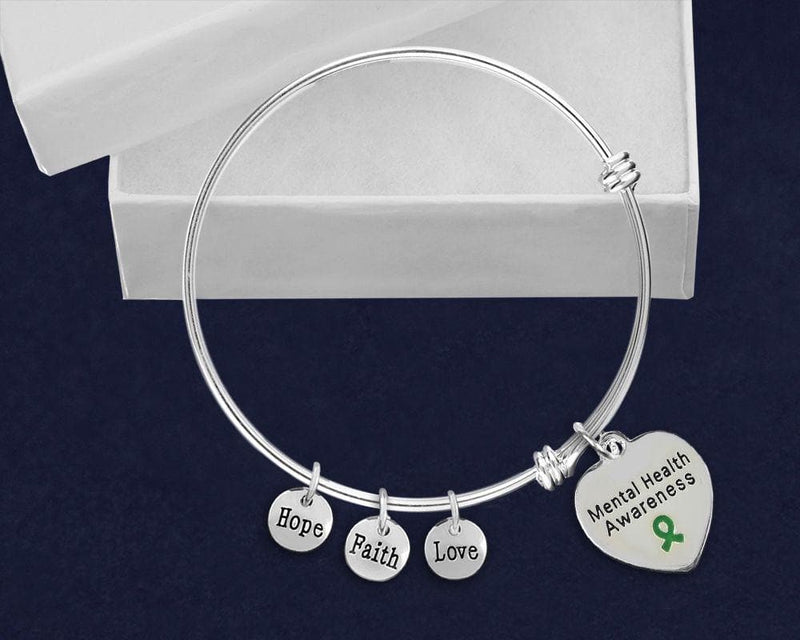
March Awareness Causes
-
Amniotic Fluid Embolism  Pink & Blue Ribbon
Pink & Blue Ribbon
March Link Amniotic Fluid Embolism  Pink & Teal Ribbon
Pink & Teal Ribbon
March Link Chronic Fatigue Syndrome  Dark Blue Ribbon
Dark Blue Ribbon
March Link Colon Cancer  Dark Blue Ribbon
Dark Blue Ribbon
March Link Colorectal Cancer  Dark Blue Ribbon
Dark Blue Ribbon
March Link DVT Awareness  Red & White Ribbon
Red & White Ribbon
March Link Dissociative Identity Disorder  Teal Ribbon
Teal Ribbon
March Link Endometriosis Awareness  Yellow Ribbon
Yellow Ribbon
March Link Essential Tremor  Lime Green Ribbon
Lime Green Ribbon
March Link Factor V Leiden  Burgundy Ribbon
Burgundy Ribbon
March Link Familial Polyposis  Dark Blue Ribbon
Dark Blue Ribbon
March Link Familial Polyposis  Brown Ribbon
Brown Ribbon
March Link Hemophilia Awareness  Red Ribbon
Red Ribbon
March Link Inhalant Abuse  Red Ribbon
Red Ribbon
March Link Kidney Cancer  Orange Ribbon
Orange Ribbon
March Link Kidney Disease  Orange Ribbon
Orange Ribbon
March Link Kidney Donation Awareness  Orange Ribbon
Orange Ribbon
March Link Lymphedema Awareness  Light Blue Ribbon
Light Blue Ribbon
March Link Mental Retardation  Green Ribbon
Green Ribbon
March Link Multiple Myeloma  Burgundy Ribbon
Burgundy Ribbon
March Link Multiple Sclerosis  Orange Ribbon
Orange Ribbon
March Link Narcolepsy Awareness  Black Ribbon
Black Ribbon
March Link Nephrotic Syndrome  Green Ribbon
Green Ribbon
March Link PHACES  Burgundy Ribbon
Burgundy Ribbon
March Link Polycystic Kidney Disease  Teal Ribbon
Teal Ribbon
March Link Pro Choice  Light Blue Ribbon
Light Blue Ribbon
March Link Rectal Cancer  Dark Blue Ribbon
Dark Blue Ribbon
March Link Self Injury  Orange Ribbon
Orange Ribbon
March Link Short Bowel Syndrome  Dark Blue Ribbon
Dark Blue Ribbon
March Link Sleep Disorders  Black Ribbon
Black Ribbon
March Link Sniffing Abuse  Red Ribbon
Red Ribbon
March Link Spay or Neuter Pets  Light Blue Ribbon
Light Blue Ribbon
March Link Thrombophilia  Burgundy Ribbon
Burgundy Ribbon
March Link Traumatic Brain Injury  Green Ribbon
Green Ribbon
March Link Trisomy 18  Light Blue Ribbon
Light Blue Ribbon
March Link Tuberculosis  Red Ribbon
Red Ribbon
March Link Von Willebrand's Disease  Red Ribbon
Red Ribbon
March Link
National Colorectal Awareness
Colorectal cancer is one of the most preventable cancers if you get screened. Screening is recommended to start at age 45 for adults with average risk factors. Schedule your colonoscopy
Screening can detect issues in their earliest, most treatable stages, giving you the chance to prevent cancer from ever occurring.
Colorectal cancer, sometimes called colon and rectal cancers, often begins as a growth called a polyp. A polyp is a growth of abnormal cells that may form on the inner wall of the colon or rectum. Some polyps become cancer over time. Finding and removing polyps can prevent colorectal cancer.
The American Cancer Society’s estimates for the number of colorectal cancer cases in the United States are over 151,000 new cases for 2022. It is expected to cause about 52,580 deaths during this year.
Excluding skin cancers, colorectal cancer is the 3rd most common cancer diagnosed in both men and women in the United States and is the 2nd leading cause of cancer related deaths among men and women combined in the United States.
Everyone is at some risk for developing cancer of the colon or rectum, collectively known as colorectal cancer. And everyone can take steps to reduce his or her risk. In fact, about 90 percent of colorectal cancers may be preventable.
- Are you 45 or older?
- Are you at high risk for colon cancer?
- Ask your doctor about a screening today
In the United States, the average lifetime risk of developing colorectal cancer is about 5 percent, or one in 20. You may be at higher risk if one or more of the following factors apply to you:
Some Blue products.
Large Dark Blue Ribbon Necklace for Causes
Small Hope Dark Blue Ribbon Magnet for Causes for Causes

Click here for more dark blue products.
Red Ribbon Products
Red Awareness Causes Red Ribbon 16" Necklace Large Ribbon









0 comments